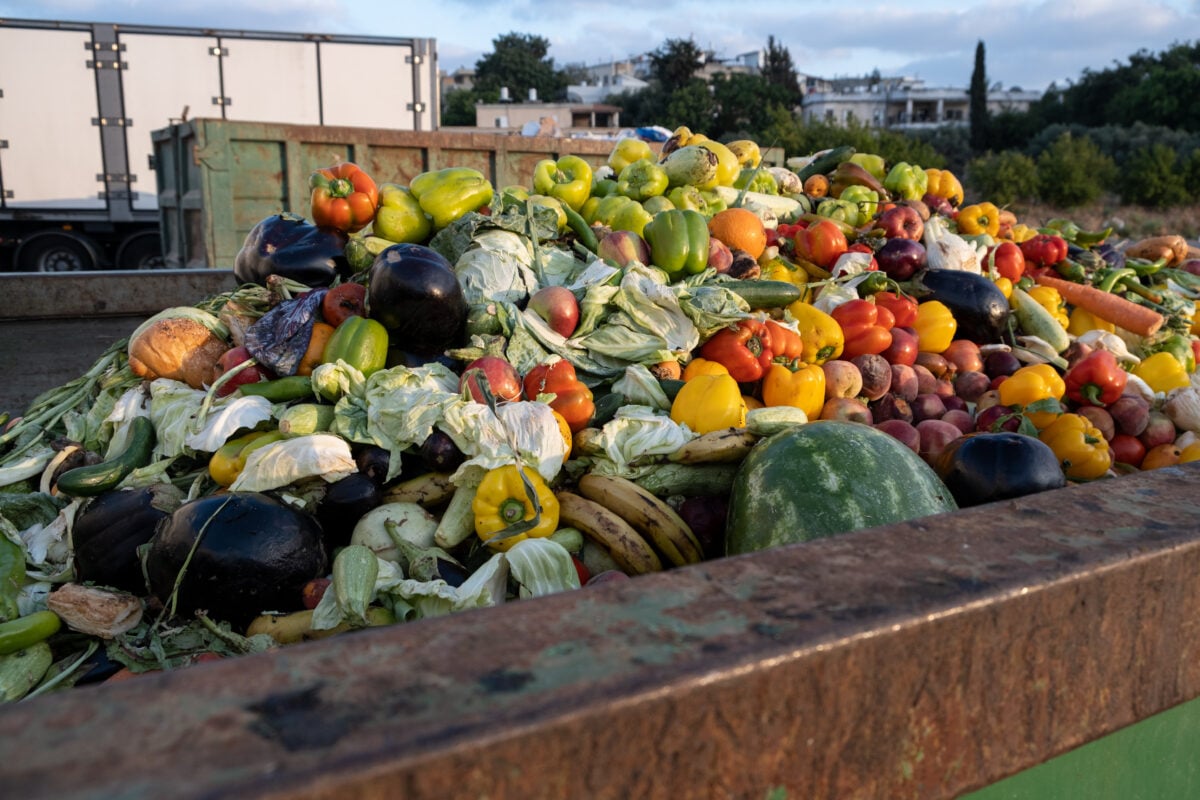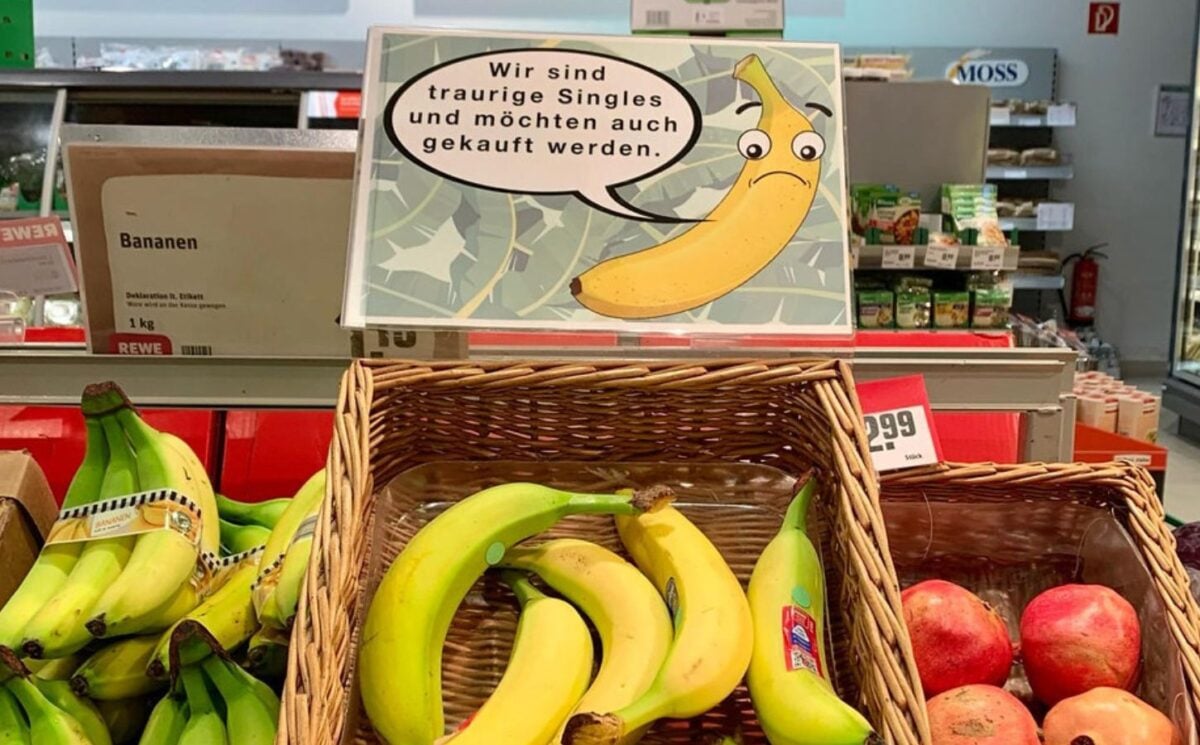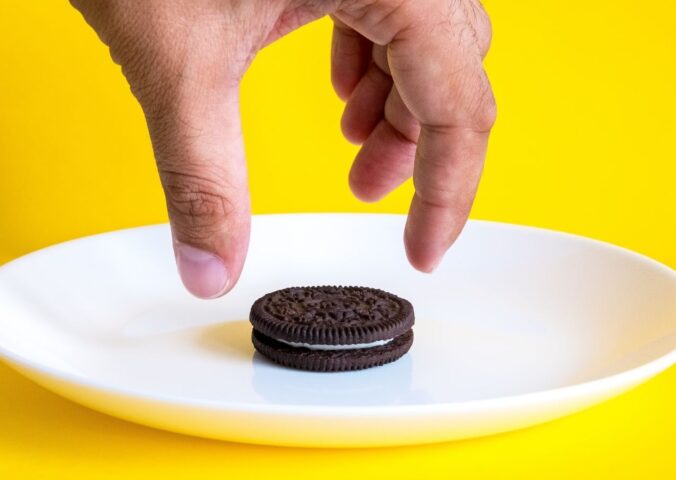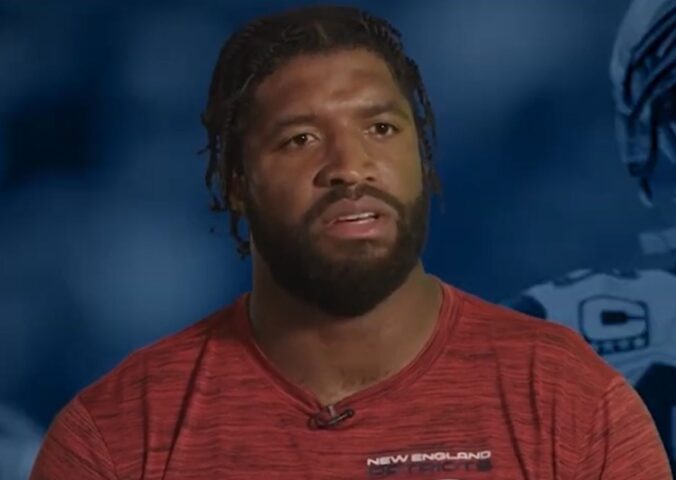Labelling lone bananas left behind on supermarket shelves as “sad singles” makes people more likely to buy them by appealing to their empathy, a new study has found.
Read more: ‘Masculine’ Labels Could Help Men Eat More Vegan Food, Study Claims
Researchers from the Universities of Bath and Frankfurt placed a sign above a basket of single bananas in a German supermarket. It showed a picture of a banana with a sad face and the message “We are sad singles and want to be bought as well.”
The number of lonely bananas sold per hour increased by 58 percent. The researchers also tested signs depicting the bananas as happy singles and without anthropomorphism. Sales of the “happy” bananas increased by only 5.4 percent per hour, making happy signage slightly more effective than no anthropomorphism. But the happy sign was almost half as effective as sad signage.
Read more: The 9 Healthiest Fruits, According To Nutritionists
“The plight of the single bananas is really relatable,” Dr Lisa Eckmann, from the University of Bath and study co-author said in a statement. “[T]he findings have very practical applications for boosting sales and reducing food waste from our supermarkets.”
Single bananas cause big problems

Single bananas often get separated from a bunch by shoppers discarding them, or during transport. They are the most wasted item and have the highest climate impact of wasted fruits and vegetables. It’s more likely that single bananas will be thrown out by retailers at the end of the day than if they remain part of a bunch.
The new study shows that reducing this kind of food waste may be as simple as tapping into people’s emotions.
Studies have already shown that anthropomorphizing food can help to sell imperfect produce like wonky vegetables. The researchers of the banana study suggest that “happy” produce can evoke feelings of warmth. Meanwhile, “sad” produce is likely to make people feel compassion, “particularly in the context of social exclusion.”
“The need to belong is one of the most basic human motivations,” said Dr Eckmann.
Read more: Billions Of Animals Killed For Food End Up In The Bin, Says New Study






